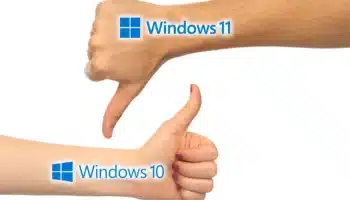LimeWire to Launch Legit Music Store
File sharing company LimeWire has announced plans to open a legitimate music store, which it will eventually integrate into its popular -- and controversial -- P2P software. The company is facing increasing pressure to clean up its business after being sued by the record industry.
While the court case is ongoing and the RIAA is demanding $150,000 for every song illegally shared via LimeWire, the company has kept its business moving forward. The LimeWire store won't have an extensive library to begin with, as it is initially only licensing music from IRIS Distribution and Nettwerk Productions. But the songs will be available as 256kbps MP3s with no copy protection. Both a la carte downloads and subscription offerings will be available to customers, but pricing has not yet been announced.
Blu-ray Movies Outselling HD DVD 2-to-1
Although it appears to be outpacing Blu-ray in turns of actual player sales, HD DVD disc sales are struggling to keep up, with Blu-ray outselling its rival by a 2-to-1 margin in the first half of 2007, according to Home Media Research.
Total sales of discs in Sony's Blu-ray format totaled 1.6 million from January 1 through July 1, while HD DVD sales amounted to only 795,000. Movie rental company Blockbuster says Blu-ray rentals are much higher than HD DVD rentals, leading the company to choose Sony's format for the majority of its stores.
AllofMP3 Exec Cleared of Charges
The former head of Mediaservices has been cleared of any wrongdoing surrounding AllofMP3 after a Russian court threw out charges against him.
EMI, Universal, and Warner Music Group had sued former Mediaservices chief executive Denis Kvasov for $587,000 USD. However, a Russian District Court judge said that he could not be sued under current laws because of a change in the rules.
AMD Denies Reports of Barcelona Ship Date Slippage
Reports in The Inquirer and a separate British technology blog citing OEM sources as saying they've been alerted to expect delays in shipments of its new quad-core Barcelona CPUs in all but the 1.9 GHz "HE" lower-power frequencies, were soundly denied this morning to BetaNews by an AMD spokesperson.
"As per our previous guidance," the spokesperson commented, "production on the 2.0 GHz parts has started, and we are on track to ship them for revenue this month." The official retail release date for Barcelona processors remains September 10, when customers are advised to expect standard edition processors at 2.0 GHz and low-power editions at 1.9 GHz. This corresponds with initial release dates announced in June and confirmed in early July.
Microsoft Upgrades Hotmail Storage, Features
Microsoft this week began rolling out new features to users of its Windows Live Hotmail service, most notably adding increased mail storage of 5GB for free accounts and 10GB for paid subscribers. The company has also add "vacation replies" and the ability to turn off the Today screen.
The updated Hotmail will reach users gradually over the coming weeks, Microsoft says. Other new features coming include better performance, increased mail retention, contacts de-duplication, mail forwarding for combining accounts, meeting requests, and better spam filtering.
DirecTV to Offer Internet Over Power Lines
DirecTV said Wednesday that it had signed an agreement with Current Group, which would allow it to offer Internet broadband services via power lines.
The company had indicated in May of this year that it was shopping around for a partner to test out so-called "broadband over power line" (BPL). Current appears to be it; the service will premiere in Dallas later this year or early next year.
US-CERT Sounds 'Storm Worm' Alarm, But is it Really a Storm?
Yesterday, the US-CERT bureau of the Dept. of Homeland Security renewed its warning about the outbreak of "Storm Worm" variants, this time acknowledging what it calls public reports of its renewed spread. Anti-virus companies familiar with these "outbreaks" know there have been a multitude of e-mail worms, each of which is delivered using a different hype-inducing or fun-filled headline.
But these worms typically deposit the same clandestine P2P service in the background of Windows, called wincom32.sys. It's surprisingly easy to detect, and can be found manually through a check of services entries in the Windows System Registry, such as HKEY_LOCAL_MACHINE\System\ControlSet001\Services\wincom32.
San Francisco Gets Second Wi-Fi Option
A small Mountain View, Calif. based company isn't waiting for EarthLink and Google to iron out contractual details to provide free Wi-Fi in the city of San Francisco.
Meraki would use volunteers who would manage routers themselves to maintain its network, somewhat similar to efforts by Spain's Fon. It would give its routers away for free to those who would agree to maintain them.
Symantec, Intel Working on Secure Chips
Security firm Symantec has joined up with chip giant Intel to research and develop security solutions built directly into the hardware used by computers. Symantec software would interact directly with the Intel chips at the hardware level, rather than relying on an operating system like Windows.
Integrating security into hardware technology is nothing new, but virtualization is opening the door to more capabilities. The effort, known as "Project Hood" according to Reuters, involves running the software "underneath and alongside" the operating system. The companies are calling the result an "appliance" that can be added to Intel's processor chipsets.
Sirius Debuts the Stiletto 2, Adds Wi-Fi
Along with the release of several other new products, Sirius on Wednesday debuted the Stiletto 2, the second live-reception capable version of its popular portable radio.
Along with the capability to receive Sirius programming in a portable fashion, the Stiletto 2 would also have Wi-Fi capabilities, including the ability to connect to commercial hotspots. The device is scheduled to become available in fall 2007.
Australians See Xbox 360 Price Drop
A week after the United States and Canada saw the Xbox 360's price tag slashed to better compete with the PS3 and Nintendo Wii, Australian gamers can buy Microsoft's console for the same price as a Wii. Starting today, the Xbox 360 Core will run A$399.95, down from A$429.95. The Pro model has been lowered from A$649.95 to A$579.95.
By comparison, in Australia the PS3 runs A$1000. Xbox 360 Pro units sold down under will also soon sport the HDMI connection that United States buyers are starting to see. Microsoft plans to bring the new Elite and Halo 3 Special Edition models to Australia as well, but the company did not specify a timeframe for availability.
First HSUPA Device Approved by FCC
It's not because "United States" begins with a later letter of the alphabet, that it lags behind most other countries on the list of those testing and approving global communications standards. By the end of this year, the UK will have two major carriers -- Vodafone Wireless and T-Mobile -- serving broadband customers with new HSUPA capacities, with at least two other carriers set to follow after the start of 2008, according to reports there.
That's not a typo: The "U" in HSUPA refers to uplink capacity. Germany may be leading the world in adoption of so-called "super-3G" technology, with theoretical data uplink rates of 5.76 Mbps, compared to EDGE's phone modem-like speed of 118.4 Kbps. Nokia tried early on to get HSUPA going in the US over two years ago, ironically by leveraging interest in the technology in South America to get a rollout started in North America.
AMD: Will More CPU Cores Always Mean Better Performance?
The company that helped inaugurate the multicore era of CPUs has begun studying the question, will more cores always yield better processing? Or is there a point where the law of diminishing returns takes over? A new tool for developers to take advantage of available resources could help find the answers, and perhaps make 16 cores truly feel more powerful than eight cores.
Two years ago, at the onset of the multicore era, testers examining how simple tasks took advantage of the first CPUs with two on-board logic cores discovered less of a performance boost than they might have expected. For the earliest tests, some were shocked to discover a few tasks actually slowed down under a dual-core scheme.
No Beatles Yet, iTunes Gets John Lennon
Although the library of Beatles music isn't expected to be available digitally until next year, Apple announced Tuesday that it has made available the solo catalog of John Lennon. 16 works from EMI have been posted on iTunes, although all but two were available for purchase on other services previously.
The “Lennon Legend” and “Acoustic” collections are making their digital debut on iTunes, and for the next 30 days, exclusive video content will be included with the albums "John Lennon/Plastic Ono Band," "Sometime in New York City,; "Walls and Bridges," "Milk and Honey" and the collections "Anthology" and "Working Class Hero." All tracks are available in DRM-free form for $1.29 USD per song.
Microsoft Remedies 14 Flaws in Nine Patches
Microsoft fixed a total of 14 flaws across 9 patches on Tuesday, with six of those patches reaching critical status. While the number of patches is far from the Redmond company's record, this month could prove difficult for administrators.
"This month's Patch Tuesday has headache written all over it," PatchLink's Paul Zimski commented. "Although this is not Microsoft's biggest Patch Tuesday in terms of number of patches, the details of the patches indicate a broad-spectrum of exposure."
BetaNews, your source for breaking tech news, reviews, and in-depth reporting since 1998.
Regional iGaming Content
© 1998-2025 BetaNews, Inc. All Rights Reserved. About Us - Privacy Policy - Cookie Policy - Sitemap.




